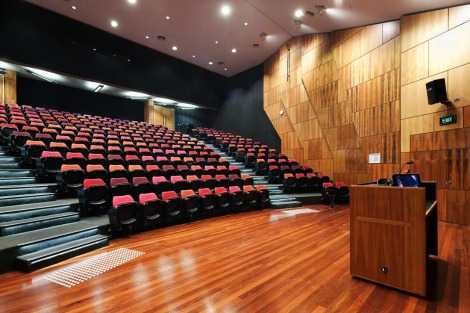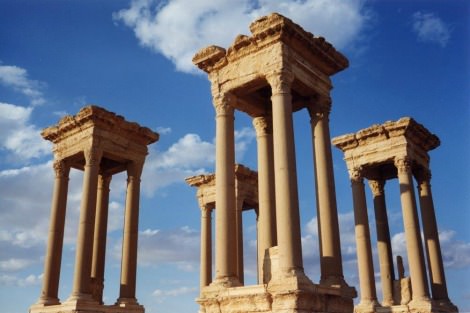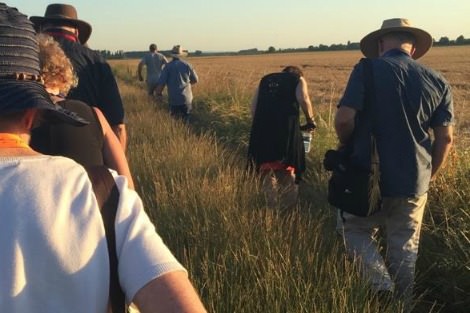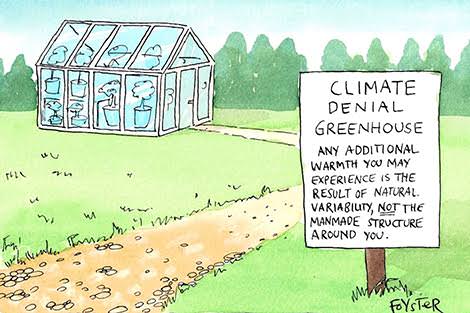Keywords: Heat
There are more than 200 results, only the first 200 are displayed here.
-

ENVIRONMENT
Standard electric heaters turn roughly one unit of electricity into one unit of heat. A reverse cycle air conditioner, however, uses electricity to 'pump' heat from one place to another and is incredibly efficient. Using electricity from the grid creates more pollution than burning gas, but the electric reverse cycle air conditioner is so efficient it's still less damaging overall. That's great news for households with air con, but galling for anyone who can't afford one, or isn't allowed to install it.
READ MORE 
-

EDUCATION
- Francine Crimmins
- 08 May 2017
14 Comments
'We won't have classes next Monday because of the public holiday on Tuesday.' My tutor tells us this cheerily, as if he has done us a favour. I'm studying a degree that costs $4000 each semester, about $60 per hour of actual teaching time. This includes a subject where instead of being able to meet with faculty members, we must skype them. If that's not the most expensive skype call ever, perhaps the critics are correct, and young people should stop complaining about the potential increase of fees.
READ MORE 
-

ENVIRONMENT
- Greg Foyster
- 31 March 2017
5 Comments
About 40km from Warrnambool in south-western Victoria is Australia's first demonstration site for storing carbon dioxide pollution deep underground. In photos, it doesn't look like much - a few water tanks, sheds and pipes in a brown paddock - and yet plans to meet the internationally agreed climate change target are betting on the success of projects like this. This isn't a fringe strategy anymore. It is a big part of the mainstream, politically preferred approach to address global warming.
READ MORE 
-

INTERNATIONAL
- Brigitte Dwyer
- 24 February 2017
6 Comments
To many in the West, we are living in a time of despair, an era of nihilism and meaninglessness, signified by growing violence, environment degradation and, most importantly, political chaos. This combination of events, and the sense of hopelessness that accompanies them, can easily be seen as markers of doom, a sign that the era of Western culture is in terminal decline. But it's also possible to interpret them as indicators of the malaise that marks the very peak of life.
READ MORE 
-

ARTS AND CULTURE
- Sandra Renew
- 20 February 2017
4 Comments
Observing the decades long incident is unbearable - although they have fallen beautifully time is not on their side, their ideals are consigned to fire. But do we care so little that when the fates convene and humans fail sumo-sized jelly fish and yellow crazy ants and ubiquitous spiders will be all that's left? Do we care so little and think we are free of all our debts? Did we think we were never so needy as to sell our dreams?
READ MORE 
-

INTERNATIONAL
- Francine Crimmins
- 19 December 2016
22 Comments
A few years ago I woke up on Christmas morning to see a small, neatly wrapped gift under the tree. The size and shape were familiar and I was excited to see my name on the gift tag. I'd wanted a new phone all year ... one with one of those touch screens everyone else seemed to have. A few months later I could no longer feel pride for my phone, instead just guilt. I'd sat down and watched a documentary about how phones just like mine were manufactured.
READ MORE 
-

ARTS AND CULTURE
- Brendan Ryan
- 12 December 2016
Watch the man in his stained shirt barefoot under the palms. Adrift from younger workers he manages a rhythm, a cigarette-dangling-from-the-lip focus. His lined face belies the strength of his forearms, thrusting each coconut onto a metal spike that is his altar. Seven days a week he splits coconuts with the precision required to not sever a wrist in a country with no health insurance. Upriver, in the seamy heat of the Mekong Delta, it could be the 19th century. I don't know where to look.
READ MORE 
-

INTERNATIONAL
- Kate Mani
- 10 November 2016
8 Comments
It's 9pm but the setting sun shows no sign of repose as it beams down across the vast wheat fields of Fromelles. The line between land and sky blurs as yellowing crops align with the sun's reach. On the other side of no man's land, a pale moon is just visible. Straight ahead a rough path through the wheat leads to the German lines. It's down this path that I file with the Friends of the 15th Brigade, descendants of the soldiers who fought here 100 years ago in the 59th and 60th AIF battalions.
READ MORE 
-

AUSTRALIA
- Frank Brennan
- 31 October 2016
3 Comments
'First warning: if you're going to be serious about a Human Rights Act, make sure that your government departments are sufficiently resourced and encouraged to produce meaningful statements of compatibility. Second warning, especially in a unicameral legislature: make sure that your parliamentary committee on human rights has sufficient muscle and status to arrest the progress of any bill until it has been thoroughly scrutinised for human rights compliance.' Frank Brennan's remarks at the Fringe Conference of the 2016 Queensland ALP Convention.
READ MORE
-

AUSTRALIA
- Frank Brennan
- 28 October 2016
7 Comments
Even prior to Brexit, the Conservatives were wanting to replace the UK Human Rights Act with weaker legislation. They have been worried about what they perceive to be a loss of sovereignty. But even the British Conservatives remain committed to some form of human rights act. I commend the Queensland parliament for undertaking its present inquiry, and sound a cautious note of optimism about the modest gains which might be made by the enactment of a human rights act in Australia.
READ MORE 
-

ENVIRONMENT
- Greg Foyster
- 26 September 2016
11 Comments
In January, swathes of ancient forest in Tasmania burned in bushfire. February 2016 was a scorcher - the warmest in 136 years of modern temperature records. By late March I was looking at images of a bleached Great Barrier Reef and feeling similarly blanched. I went for a walk, breathing heavily. It was sunny. Ominously warm. Fifteen minutes later, when I returned to my desk, my mood was buoyant again. I turned off my computer, and threw the report I'd been reading in the recycling bin.
READ MORE 
-

ARTS AND CULTURE
- Tim Kroenert
- 21 September 2016
1 Comment
At a Sydney school, a group of teenage refugees come together to share their stories, first with each other, and then with their friends and families via a live theatrical performance. Treehouse Theatre is run by three dedicated teachers, who facilitate the sharing, and help transform the children's stories into scripts that can be performed. Their stories are yet another reminder of the human cost of conflict, and of policies that exclude and further traumatise those who are fleeing from it.
READ MORE 